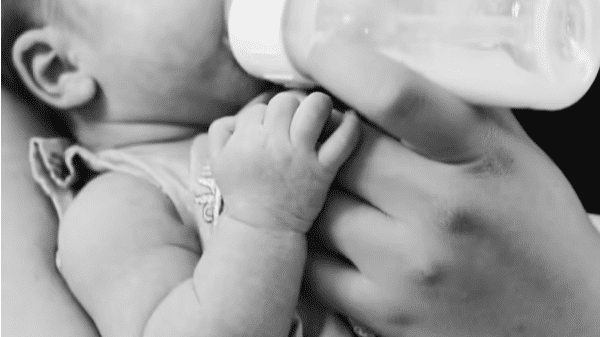Certain lots of Similac, Alimentum and EleCare, the three popular powdered infant formulas manufactured at an Abbott plant in Michigan, have been recalled due to salmonella and Cronobacter sakazakiim complaints.
Also Read: Coppertone recalls sunscreen products due to benzene presence
The Food and Drug Administration said on Wednesday that it is investigating four reports of infants who were admitted to hospital after consuming the formula, including one who died.
Also Read: US buys 600K doses of new COVID antibody drug awaiting clearance
One of the cases involved salmonella and three involved Cronobacter sakazakiim, which is a rare but dangerous germ that can cause blood infections and other serious complications.
“As this is a product used as the sole source of nutrition for many of our nation’s newborns and infants, the FDA is deeply concerned about these reports of bacterial infections,” said Frank Yiannas, FDA Deputy Commissioner for Food Policy and Response.
“We want to reassure the public that we’re working diligently with our partners to investigate complaints related to these products, which we recognize include infant formula produced at this facility, while we work to resolve this safety concern as quickly as possible.”
Also Read: These whole onion brands recall salmonella outbreak
Abbott said it is recalling all potentially affected products manufactured at the facility. The recall affects certain lots of Similac, Alimentum and EleCare with expiration dates of April 1, 2022, or later. The product was distributed throughout the United States and overseas.”
“Abbott is voluntarily recalling these products after four consumer complaints related to Cronobacter sakazakii or Salmonella Newport in infants who had consumed powder infant formula manufactured in this facility,” the company said in a statement.
Also Read: Salmonella outbreak linked to onions imported from Mexico sickens hundreds
“Additionally, as part of Abbott’s quality processes, we conduct routine testing for
Cronobactersakazakii and other pathogens in our manufacturing facilities. During testing in our Sturgis, Mich., facility, we found evidence of
Cronobactersakazakii in the plant in non-product contact areas. We found no evidence of Salmonella Newport. This investigation is ongoing.”







